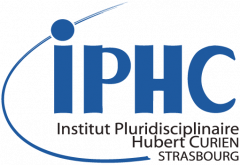The Establishment and Maintenance of Division of Labour in the Indian Paper Wasp Ropalidia marginataRaghavendra GadagkarDST Year of Science Chair Professor, Centre for Ecological Sciences, Indian Institute of Science, Bangalorehttps://sites.google.com/view/raghavendragadagkar Social insects such as ants, bees, wasps, and termites have achieved unparalleled ecological success, dominating terrestrial ecosystems worldwide. A significant factor that has made this possible is their efficient division of labour. Firstly, they exhibit a reproductive division of labour such that only one or a small number of individuals reproduce, leaving the remaining sterile workers free to undertake the tasks of nest building, colony defence, brood care and foraging. Secondly, they also exhibit non-reproductive division of labour such that different sub-groups of workers specialize in undertaking sub-sets of non-reproductive tasks. The twin benefits of task specialization and parallel processing help them to outperform their solitary counterparts. Using the Indian paper Ropalidia marginata, we have attempted to under how reproductive and non-reproductive division of labour are established in newly founded colonies and maintained in established colonies with many new-generation individuals. Topic: Zoom meeting – DEPE animation scientifique – BEEPS Join Zoom Meetinghttps://cnrs.zoom.us/j/92785456777?pwd=NU1FQzdwVTFERXZqMG5LRXJRSUlQZz09 Meeting ID: 927 8545 6777Passcode: LT1fEU
https://indico.in2p3.fr/event/31859/
Début : 18/04/2024 à 11:00
Fin : 18/04/2024 à 12:00
Prochains évènements
Retour à l'agendaJournée scientifique IPHC
Amphi Grunenwald https://indico.in2p3.fr/event/33637/
Journée Technique Circuits Imprimés CNRS & Würth Elektronik PCBs
Rendez-vous le jeudi 17 octobre 2024, à partir de 9h00, à l'IPHC de Strasbourg pour une journée technique en partenariat avec Würth Elektronik France PCBs, expert fabricant allemand de circuits imprimés depuis 1971. Ouverte à tous, experts comme généralistes internes au CNRS ou non, cette journée sera l'occasion de se former sur la conception et la fabrication de circuits imprimés, éléments essentiels au développement d'une carte électronique. Elle se déroulera sous forme de présentations dont vous trouverez le programme sous la rubrique "ordre du jour". L'horaire des présentations est donné à titre indicatif et pourra être adapté en fonction du timing et de la demande des participants. Les présentations aborderont des sujets très variés tels que la conception et la fabrication de PCBs multicouches rigides et souples, les matériaux utilisés, les types de finition, les facteurs de coût, la dissipation thermique et autres technologies. Vous découvrirez aussi le site de configuration en ligne instantané de PCBs. En parallèle, l'équipe Würth Elektronik se tiendra à votre disposition, dans leur showroom roulant "WE mobil", pour vous apporter des réponses sur mesure et mettre à disposition des échantillons. Il sera stationné à côté du batiment 25 et accessible tout au long de la journée à votre convenance. Venez à tout moment pour poser vos questions et discuter de vos projets. Il ne vous reste plus qu'à remplir le formulaire d'inscription (onglet en haut à gauche). https://indico.in2p3.fr/event/33291/
